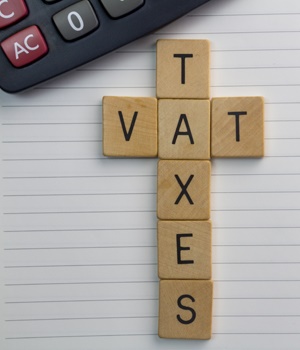Treasury is expected to take advantage of the bracket creep effect again this year, according to David French, director of tax consulting at Mazars.
"The personal income tax rates are probably going to stay the same, with Treasury taking advantage of the fact that more people will move into higher tax brackets when they receive their annual salary increases, even if those increases are merely in line with inflation," French commented ahead of Finance Minister Tito Mboweni's Budget 2019 speech.
"While the middle and lower tax brackets may see adjustments closer to inflation, the upper tax brackets will possibly see some upward adjustment, but not too much. Something like this also usually bodes well for Treasury’s public perception, since it seems like they are looking out for the lower income classes."
Another reason why this year's budget speech will likely not see any major tax announcements, according to French, is because tax rates are reaching their peak.
Tax 'wiggle room'
French, therefore, forecasts that Treasury will have to focus on substantially improving the efficiency of the SA Revenue Service (SARS), as well as to plug all of the major revenue holes – such as the unnecessary expenditure at state-owned entities.
With the 2019 South African general election set for 8 May this year, there is likely to be significant pressure on Treasury to find ways of reassuring the public and maintaining support for the current government, in his view.
As such, the Budget 2019 speech is expected to contain more populist and political messages than major tax change announcements, French believes.
Ettiene Retief, chair of the National Tax and SA Revenue Service (SARS) Committee at the SA Institute of Professional Accountants (SAIPA), said that in his October mini-budget speech, Mboweni indicated that changes to the current personal and corporate income tax rate or VAT should be avoided.
However, according to Retief, the government may still have some wiggle-room with other taxes. These include adjustments to high ticket or luxury items, reducing tax allowances and deductions, and possibly extending its attack on estate planning and the use of trusts.
Indirect taxes, such as sin taxes on alcohol, cigarettes or sugar, might see further increases, as well as the Road Accident Fund and fuel levy.
Rob Cooper, tax expert at Sage, said from a legislation perspective, he expected Mboweni to deliver a relatively cautious budget.
In his view, much of the focus will be on refinancing the state-owned enterprises and putting them back on to a sustainable footing.
Crossroads
Global law firm Norton Rose Fulbright SA said in his mini budget in October last year, Mboweni recognised that the economy was at a crossroads.
"The economy is in a technical recession with gross domestic product (GDP) growth expected to be less than 1% and with an unemployment rate as high as 27%," it said in a statement.
Mboweni recognised that reforms to the structure of the economy were required, and there was a need to increase productivity and reduce the cost of doing business, the statement added.
Mboweni further acknowledged it was necessary to find a way to manage the government wage bill, which consumes approximately 35% of public resources, said Norton Rose Fulbright.
"The mini budget also made reference to the fact that increases in tax rates are unlikely unless there are changes to the economic environment which require it," stated the law firm.



